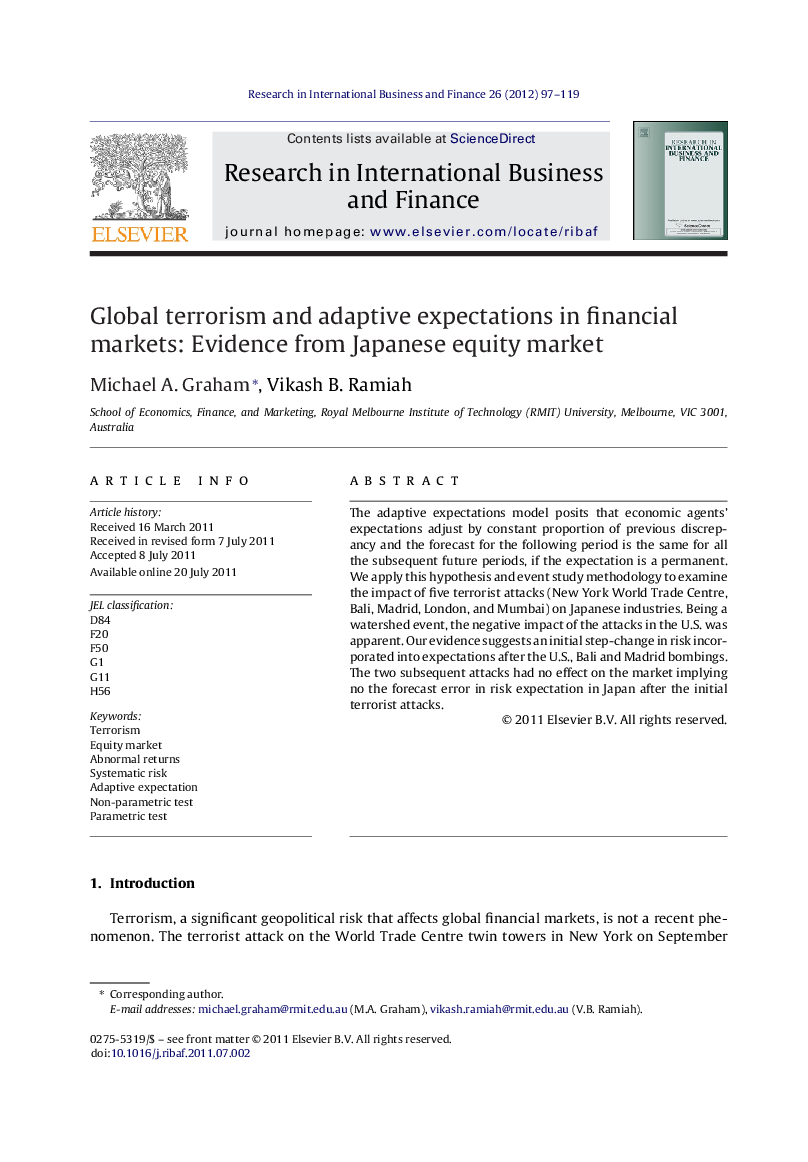| Article ID | Journal | Published Year | Pages | File Type |
|---|---|---|---|---|
| 1002961 | Research in International Business and Finance | 2012 | 23 Pages |
The adaptive expectations model posits that economic agents’ expectations adjust by constant proportion of previous discrepancy and the forecast for the following period is the same for all the subsequent future periods, if the expectation is a permanent. We apply this hypothesis and event study methodology to examine the impact of five terrorist attacks (New York World Trade Centre, Bali, Madrid, London, and Mumbai) on Japanese industries. Being a watershed event, the negative impact of the attacks in the U.S. was apparent. Our evidence suggests an initial step-change in risk incorporated into expectations after the U.S., Bali and Madrid bombings. The two subsequent attacks had no effect on the market implying no the forecast error in risk expectation in Japan after the initial terrorist attacks.
